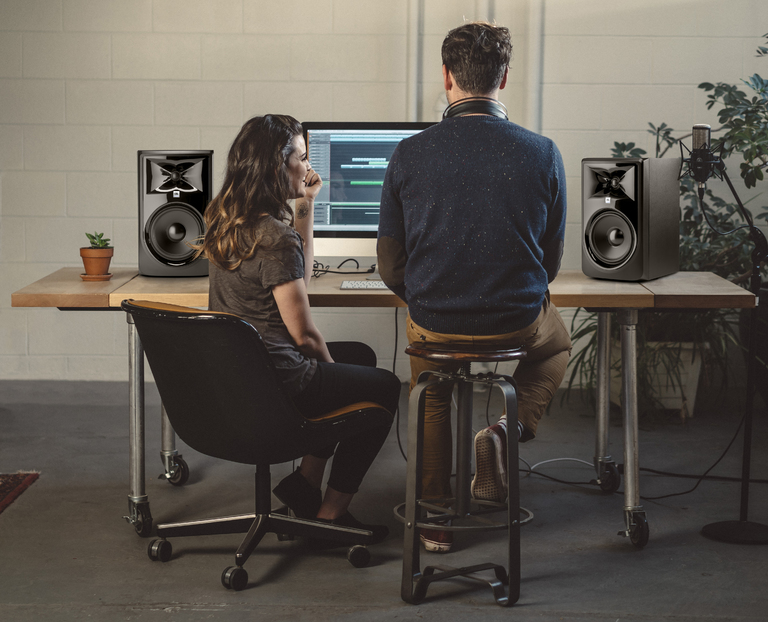
What are Digital Aggregators?
A digital aggregator is a company that puts your music out to online consumption services. As an artist you upload your music to the aggregator's website and they distribute accordingly on your behalf. Your music will be need to be uploaded as high quality 16bit stereo files, in either WAV or FLAC formats, at a 44.1 kHz sample rate. Some sites, such as Spotify, will only allow uploads via a third party aggregator. Certainly, in most cases is it the quickest way.
Aggregators make their money in one of two ways; either by taking a percentage of the royalties you make, or with an upfront fee. For some companies, this will be a one off fee, but others repeat this every year to keep your music active.
It’s well worth doing your research on different aggregators, as they all have different pros and cons. However, for a quick oversight, I have made a table below:
| Single (£) | EP (£) | Album (£) | Fee (£) | % received | Consumers | USP | |
| AWAL | Free Upload | None | 85 | All major | Kobalt software | ||
| CD Baby | 7.50 | N/A | 36 | One-time | 91 | All major | |
| Ditto Music | 19 unlimited yearly | Yearly | 100 | All major | Links to Vevo | ||
| DistroKid | 15 unlimited yearly | Yearly | 100 | Spotify | Spotify integration | ||
| EmuBands | 24.95 | 34.95 | 49.95 | One-time | 100 | All major | |
| Record Union | 11 | 15 | 18.50 | Yearly | 100 | All major | |
| Routenote (free) | Free upload | None | 85 | All major | |||
| Routenote (paid) | 7.50 | 15 | 22 | 7.50 yearly | 100 | All major | |
| Spinnup | 7.99 | 14.99 | 29.99 | Yearly | 100 | All major | |
| Tunecore | 7.49 | N/A | 29.99 | 39.99 yearly | 100 | All major | Extra artist services |
Notes
- names in bold are converted from dollars to pounds (correct at time of writing)
- ‘All major’ includes Spotify, iTunes, Apple Music, Deezer, Amazon Music and Google Play
Why use an aggregator?
As mentioned, some sites like Spotify will only allow upload via an aggregator. In other cases like with iTunes, the process can be incredibly lengthy and confusing if you haven’t researched it. There are also a number of potential stumbling blocks that could hold up the process. Using an aggregator eliminates as much of this hold-up as possible.
The majority of aggregators also collect royalties on your behalf and pay them out to you. Generally there are flexible options for payments too.
Which platforms should I target?
It’s always advisable to cast your net as wide as possible, particularly at the start of your career. However, targeted promotion can be useful if you know your fanbase are more accessible on a particular medium. For example, in many Middle Eastern and African nations, Deezer is the most used streaming site, but in western nations Spotify and Apple Music is more popular.
Also, download sites offer more money per unit than streaming, but will have a far lower reach too. Generally speaking, music is more often consumed via streaming than downloads these days, so plumping up the number of streams you get may be more beneficial.
Ultimately, the most important thing is to research your own fanbase as much as possible. Most aggregators offer stats and facts about who consumes your music, so you should always be on the ball with this too.
How much do different services pay?
The amount paid from different music consumption services can vary greatly. Below you’ll find a table of some major music streaming sites, showing the average payment made per play:
| Apple Music | $0.00735 |
| Google Play | $0.00676 |
| Deezer | $0.00640 |
| Spotify | $0.00437 |
| Amazon Music | $0.00402 |
| YouTube | $0.00069 |
What about physical music?
This is a contentious issue. Realistically, CDs, vinyl and cassettes are old news and several record labels wont bother with them. However, the resurgence in vinyl as a nostalgia piece has pulled other physical mediums too. As an independent, unsigned act, a limited CD run can be a great method of getting music about. CDs are often best because they can be used in cars and most computers still, and are incredibly cheap to get made. However, not everyone will feel this way so knowing your fanbase is key.
Vinyl’s and cassettes are much more expensive to have made and less widely useable. These are things that you should only do if you’re certain you can sell. While most will probably not be able to, there are certain genres that will relish this sort of thing, and you’ll know if that’s you.
Sam Cross
This new blog is presented by the team at Sound Technology Ltd, a leading distributor of musical instruments and pro audio equipment in the UK and ROI.